‘Spectacular Betrayal’ as Trump Rolls Back Wall Street Regulations
The president is set to scale back the 2010 Dodd-Frank financial-overhaul law and roll back an Obama-era financial regulation.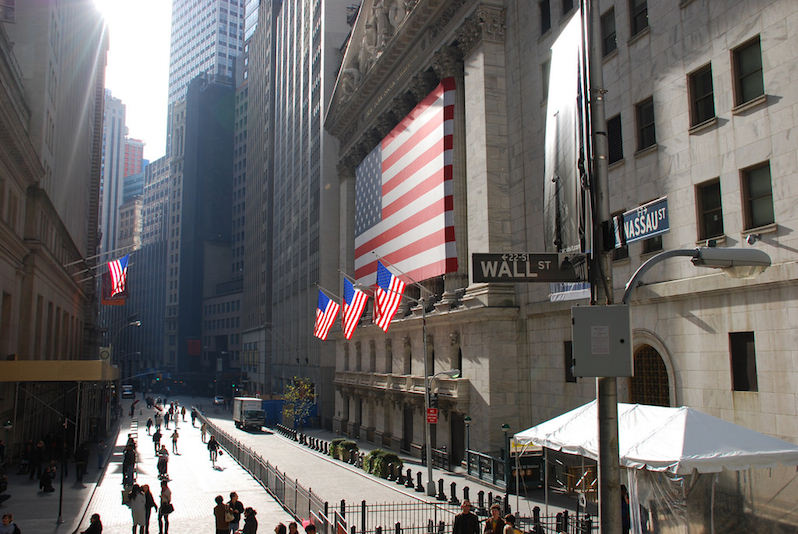 New York's Wall Street. (Dave Center / CC 2.0)
New York's Wall Street. (Dave Center / CC 2.0)
By Deirdre Fulton / Common Dreams
President Donald Trump is set to hand the U.S. economy “back over to Wall Street” on Friday, with a regulatory rollback that critics say could put consumers and the financial system at risk.
According to the Wall Street Journal, Trump plans to sign executive orders Friday “establish[ing] a framework for scaling back the 2010 Dodd-Frank financial-overhaul law” and rolling back an Obama-era regulation requiring advisers on retirement accounts to work in the best interests of their clients. That rule was set to go into effect in April.
Trump plans to sign the orders surrounded by bank CEOs.
“The Wall Street bankers against whom Trump ran are making policy now,” said Robert Weissman, president of watchdog group Public Citizen.
“The worst job-destroying economic crisis since the Great Depression was directly caused by deregulation and regulatory failure,” he said. “Now the president who ran on a jobs-creation platform announces that he aims to slash the modest measures put in place to prevent a recurrence of the crisis. If Trump succeeds in rolling back Dodd-Frank rules he will rush the country straightforward into another job-killing financial crisis. This may be the most spectacular betrayal yet by the president of his voters, as he shunts aside their concerns and pushes forward the agenda of his cronies and the well-connected.”
Furthermore, White House National Economic Council director Gary Cohn, who formerly served as president of Goldman Sachs, told the Journal that Friday’s memoranda were merely “a table setter for a bunch of stuff that is coming.”
Also in the administration’s crosshairs are the Financial Stability Oversight Council (FSOC)—which has the ability to designate and rein in giant financial institutions that are “systemically important” to the global economy—and the Consumer Finance Protection Bureau (CFPB), which has cracked down on predatory payday lenders; set new standards for the mortgage market; and recovered and sent back billions of dollars for consumers harmed by illegal practices of credit card companies, banks, and debt collectors. Both entities were established by Dodd-Frank.
Bloomberg described the orders as “the most aggressive steps yet by Trump to loosen regulations in the financial services industry and come after he has sought to stock his administration with veterans of the industry in key positions.”
In addition to Cohn, Trump’s cabinet includes Goldman alums Steven Mnuchin, the nominee for treasury secretary, and chief strategist Steve Bannon, who worked at the institution in the 1980s. Wall Street lawyer Jay Clayton, Trump’s pick to run the Securities and Exchange Commission (SEC), also has ties to Goldman Sachs.
Former Wall Street worker Alexis Goldstein laid out the implications of Trump’s orders in a series of tweets on Friday:
1/ Let’s talk about what Dodd-Frank does, not that Trump has decided to think about gutting it, & turning the economy back over to Wall St.
— Alexis Goldstein (@alexisgoldstein) February 3, 2017
1 of Dodd-Frank’s SIGNATURE achievements is @CFPB. Run by Director Richard Cordray, they’ve gotten $12 BILLION back to scammed Americans /2
— Alexis Goldstein (@alexisgoldstein) February 3, 2017
3/ I wrote an entire thread about the great work of the @CFPB here: https://t.co/N8PlFBukku #DefendCFPB
— Alexis Goldstein (@alexisgoldstein) February 3, 2017
4/ Dodd-Frank created new rules to prevent future financial crises. The Volcker Rule prevents banks w/ FDIC insurance from GAMBLING w your $
— Alexis Goldstein (@alexisgoldstein) February 3, 2017
5/ Dodd-Frank created a process (“living wills”) to break up banks if they are too big to fail in bankruptcy without endangering the economy
— Alexis Goldstein (@alexisgoldstein) February 3, 2017
6/ Risky derivatives played a big role in the crisis. Dodd-Frank created rules to shine a SPOTLIGHT on this previously shadowy marketplace
— Alexis Goldstein (@alexisgoldstein) February 3, 2017
7/ As you call your Senators, please tell them we must DEFEND the Dodd-Frank Act b/c we don’t want banks stealing our money: 202-224-3121.
— Alexis Goldstein (@alexisgoldstein) February 3, 2017
8/ Dodd-Frank also established preventative medicine to help prevent future bailouts. (For you nerds out there, this is Title I of the bill)
— Alexis Goldstein (@alexisgoldstein) February 3, 2017
9/ Dodd-Frank also established an Emergency Room for failing banks. If a bank fails, all of Wall St helps to pay for the failure. pic.twitter.com/auB9nfNmmn
— Alexis Goldstein (@alexisgoldstein) February 3, 2017
10/ Republicans have been trying to gut Dodd-Frank for a long time. Wall Street has been yearning for it. Now Trump is handing them the keys
— Alexis Goldstein (@alexisgoldstein) February 3, 2017
Meanwhile, in an op-ed Friday, Lisa Donner of Americans for Financial Reform and Ed Mierzwinski of U.S. PIRG focus specifically on the CFPB, saying any attempt to “defang” the agency “will be seen for what it is: a cave-in to the power of Wall Street and the financial lobby. Hollowing out the CFPB would be terrible for American consumers and families, hugely increasing the ability of banks and financial companies to write their own rules and control their own regulators.”
Your support matters…Independent journalism is under threat and overshadowed by heavily funded mainstream media.
You can help level the playing field. Become a member.
Your tax-deductible contribution keeps us digging beneath the headlines to give you thought-provoking, investigative reporting and analysis that unearths what's really happening- without compromise.
Give today to support our courageous, independent journalists.
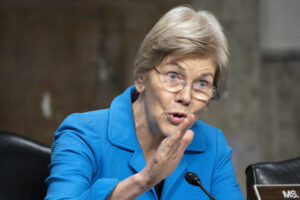
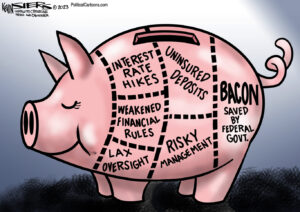
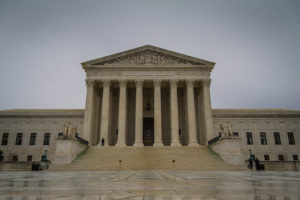
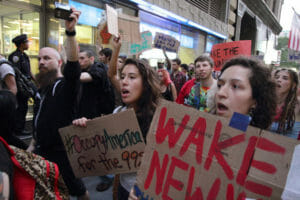
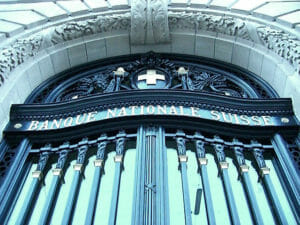
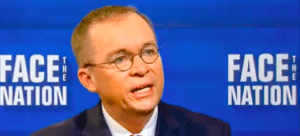
You need to be a supporter to comment.
There are currently no responses to this article.
Be the first to respond.